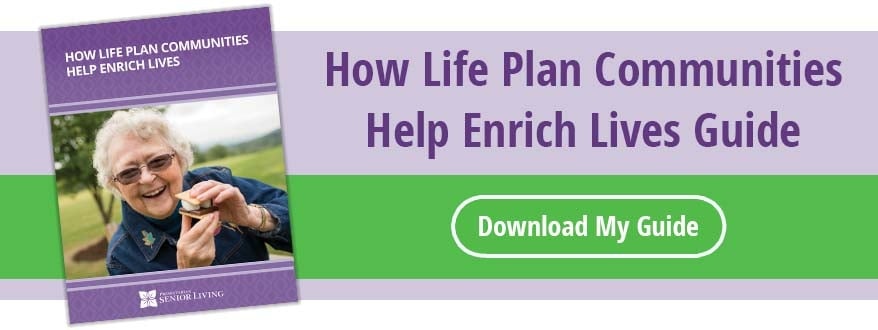
Why A Healthy Heart Matters and What You Can Do About It
Updated from the original publication on February 18, 2021.
February is American Heart Health Month, but it's important to remember the benefits of keeping your heart healthy all year long. The goal of American Heart Health Month is to save lives by preventing one million heart attacks and strokes in the U.S. by the year 2117. As you’ll see, maintaining a healthy heart is incredibly important. But thankfully, it’s also relatively easy.
Why a Healthy Heart is Important
You probably are aware that having a healthy heart is important. But do you know what could happen if you don’t maintain your heart health? According to the CDC, more than 750,000 Americans suffer every year from a heart attack. Even worse, heart disease kills 610,000 people every year. That’s around 1 out of every 4 deaths each year. Because of this, the CDC says heart disease is now the number one killer in America.
To better understand how to prevent heart disease, we need to understand what causes it. The most common cause is Atherosclerosis, or plaque build-up in your arteries. Plaque buildup thickens and stiffens artery walls, which can slow down or even stop blood flow through your arteries. It can be caused by problems like an unhealthy diet, lack of exercise, being overweight and smoking.
High blood pressure is another leading cause of heat attacks and heart disease. It’s dangerous because it makes the heart work harder to pump blood out to the body and contributes to the hardening of the arteries. High blood pressure isn’t just a leading cause of heart disease. It can also lead to loss of vision, strokes, kidney failure, and erectile dysfunction. Like Atherosclerosis, high blood pressure can also be caused by an unhealthy diet, lack of exercise, being overweight and smoking.
Age is another major factor in heart health. The heart is a muscle, and as we get older, it can start to lose some of its strength. Arteries also accumulate plaque over time, meaning the older you are, the greater your chance of developing Atherosclerosis or high blood pressure. Unfortunately, age isn’t something we can control, so there isn’t much we can do about it. Instead, we should be focusing on the things we can control.
What We Can Control
 Did you notice what Atherosclerosis and high blood pressure have in common? Besides being blood-related, they both can be caused by poor diet and exercise, being overweight, and smoking. These are all things that we can control. Taking charge of these areas in you life can lower your risk for heart problems. Below are some tips to help you get the factors under control.
Did you notice what Atherosclerosis and high blood pressure have in common? Besides being blood-related, they both can be caused by poor diet and exercise, being overweight, and smoking. These are all things that we can control. Taking charge of these areas in you life can lower your risk for heart problems. Below are some tips to help you get the factors under control.
A Heart Healthy Diet
Eating a poor diet is one of the worst things you can do for your heart. Saturated and trans fats can increase blood cholesterol and heart attack rates. Sugary and salty foods can also lead to weight gain and increase your blood pressure.
A healthy diet is a balanced diet of protein, unsaturated fat, and carbohydrates. Lean meat, fish, dairy products and vegetarian alternatives are good sources of protein. Starchy foods like whole grain bread are good heart healthy carbohydrates. And of course, don't forget to eat your fruits and veggies! You should be eating five servings of fruits and vegetables every day.
Alcohol can also affect your heart. How it affects you is directly related to how much you drink. Studies have shown that moderate alcohol use can have a beneficial effect on heart disease. It mostly affects men over the age of 40 and women who have gone through menopause. For women, no more than 14 drinks a week, with 1-2 a day is recommended. For men, 21 drinks a week with no more than 3 a day is acceptable. If you drink much more than that, the potential benefits can quickly become harmful.

Healthy eating can reduce your risk of heart disease by lowering blood pressure,increasing good cholesterol, and lowering bad cholesterol. It can also prevent blood clots, and keep your body weight in the healthy range. Combined with exercise, it is the most effective way to lower your risk of heart disease.
Heart Healthy Exercise
Exercise is another key way to improve your heart health. It makes your heart stronger, and can also improve the effectiveness of some blood pressure medications if you’re already taking them. The good news is you don’t have to be an athlete to exercise for your heart. Just 30 minutes a day is usually enough to start seeing the benefits of your activity.
It’s also not necessary to go to the gym if you don’t want to. There are benefits to a gym, but it’s not for everyone. You can find a fun activity you enjoy and do that instead. Whether that’s hiking, gardening, yoga, or anything else that makes you exert yourself. Don’t exert yourself too much at first. Start out slow and build up to where you want to be. Pacing yourself will also help you avoid any injuries. You should consult your doctor before starting any exercise regimen. They will know what’s best for you.
Obesity
The majority of Americans, nearly 70%, are either overweight or obese. A person is considered overweight if their Body Mass Index (BMI) is higher than 25, and they are considered obese if it’s more than 30. In its simplest terms, obesity means you have too much body fat.
Being obese can raise bad cholesterol while lowering the good kind, increase blood pressure, and increase the risk of diabetes. Diabetes is bad on its own, but it can also significantly increase your risk of a heart attack. Your healthiest weight will depend on your height and age, but even losing a few pounds can improve your heart health. With a lower weight, your body can circulate blood more efficiently and manage your systems easier. If you follow the guideline above for healthy eating and exercise, you’ll see your weight drop quickly.
Smoking
 Smoking is one of the biggest preventable causes of death in the United States. By itself, smoking can greatly increase your risk of heart problems, but when combined with other factors, it multiplies that effect. Smoking can increase your risk of a blood clot, and it can decrease your levels of good cholesterol. It can also decrease your willingness for exercise.
Smoking is one of the biggest preventable causes of death in the United States. By itself, smoking can greatly increase your risk of heart problems, but when combined with other factors, it multiplies that effect. Smoking can increase your risk of a blood clot, and it can decrease your levels of good cholesterol. It can also decrease your willingness for exercise.
Quitting smoking can be extremely hard, but the health benefits are enormous. You’ll start improving your lungs almost immediately. Within just 12 hours of stopping, the amount of oxygen in your blood will start to return to normal. That is the first step to improving your heart health. If you’re thinking “I’ve been smoking all my life, it’s too late to quit,” that’s almost never true. There are plenty of support options available to help you kick the habit. Heart disease can be controlled, and quitting smoking is a major step.
Now that you know the facts, talk to your doctor about the best way to lower your risk of heart problems. They’ll be able to determine what’s best for you, and they can prescribe you any necessary medications. It may seem like a difficult change, but focusing on your heart can keep you living longer, and better.
To learn more about how a senior living community can enrich your life and help you stay healthy, download our free eBook below!



